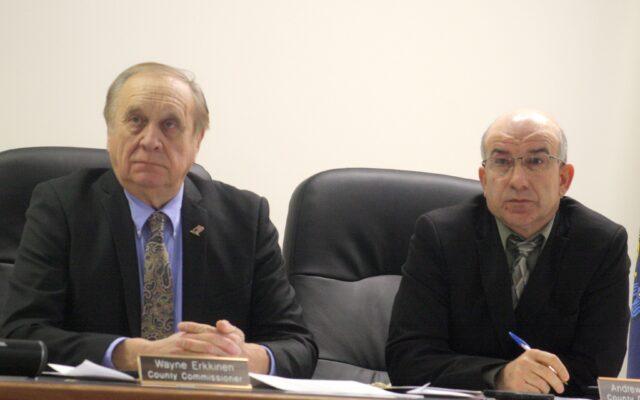
Piscataquis becomes first Maine county to declare itself Second Amendment sanctuary
By David Marino Jr., Bangor Daily News Staff
Piscataquis County has become the first Maine county to declare itself a Second Amendment sanctuary, a win for gun rights advocates who have already pushed cities and towns across the state to do the same.
The resolution in Maine’s least populous county, passed unanimously on June 16, states that county commissioners will refuse to enforce or financially support any new gun laws that infringe on the Second Amendment to the U.S. Constitution or Article I, Section 16 of the Maine Constitution, which states that the right to bear arms “shall never be questioned.” The resolution also “recognizes the discretion” of the Piscataquis County Sheriff’s Department’s not to enforce any federal gun laws that violate those documents.
The Second Amendment sanctuary movement pushes back against state and federal gun control measures that sanctuary supporters see as unconstitutional. The measures are primarily symbolic, as counties and municipalities in Maine hold little power to regulate guns.
Several Maine towns have declared themselves Second Amendment sanctuaries in recent months since President Joe Biden’s inauguration, including Caribou, Van Buren and Fort Fairfield, as local politics becomes increasingly nationalized.
It is not the first time Piscataquis County’s three commissioners have weighed in on a national issue this year. In January, they passed an anti-mask resolution amid a statewide surge in coronavirus cases. That resolution falsely said that masks cause pneumonia and repeatedly referred to COVID-19 as the “Wuhan Virus.”
The Second Amendment initiative came after Chad Perkins of Dover-Foxcroft collected about 150 signatures from Piscataquis County residents to pass a sanctuary resolution. He wrote a draft resolution based on resolutions passed in other communities, which the commissioners then edited.
Perkins said the resolution was not about gun control but constitutional rights. He emphasized the importance of guns for protection and said many falsely associated guns with criminal activity when very few of the 390 million firearms owned by civilians in America are used for such purposes.
The Supreme Court first recognized the Second Amendment as providing an individual right to a firearm in the 2008 District of Columbia v. Heller case.
Jim White, chairperson of the Piscataquis County Commissioners, said he had been approached at least 15 times over the last three months about a Second Amendment sanctuary resolution. He had initially opposed the idea, as he saw it as unnecessary given his oath. He’s now in support but said the resolution is still primarily symbolic.
“I see it as a clarification of an oath I’ve already taken,” White said. “Does this have any teeth? Probably not.”
Commissioner Andrew Torbett said the resolution was also meant to represent concern with the way the “current administration was moving,” presumably referring to the Biden administration. Biden has urged Congress to pass gun restrictions, including banning assault weapons and closing background check loopholes, amid a spate of mass shootings this year.
Piscataquis County Sheriff Robert Young said he supported the Second Amendment, but did not provide further information about how it could change policy for his department. He noted that the resolution recognizes that his department has ultimate discretion over enforcement.
“This is a resolution that is yours,” Young said. “I’m not going to weigh too deeply into it.”
Perkins said he had spoken to Young about including information about the sheriff’s office’s discretion in the resolution. Young did not immediately respond to a request for further comment.
In addition to being the first in Maine, Piscataquis County is also the first county in New England to become a Second Amendment sanctuary, according to a list compiled by SanctuaryCounties.com, a gun rights advocacy website.
When asked by County Manager Michael Williams whether the commissioners wanted to run the document by the county’s legal counsel, the commissioners declined, as it was a resolution rather than legislation.
The primary difference between Perkins’ draft document and the final document commissioners passed is that language saying the Constitution “granted” an individual right to firearms was changed to say it “protected” that right. The commissioners also added a paragraph noting that the commissioners derive their power from the Maine Legislature, which needs to follow the Maine and U.S. constitutions.